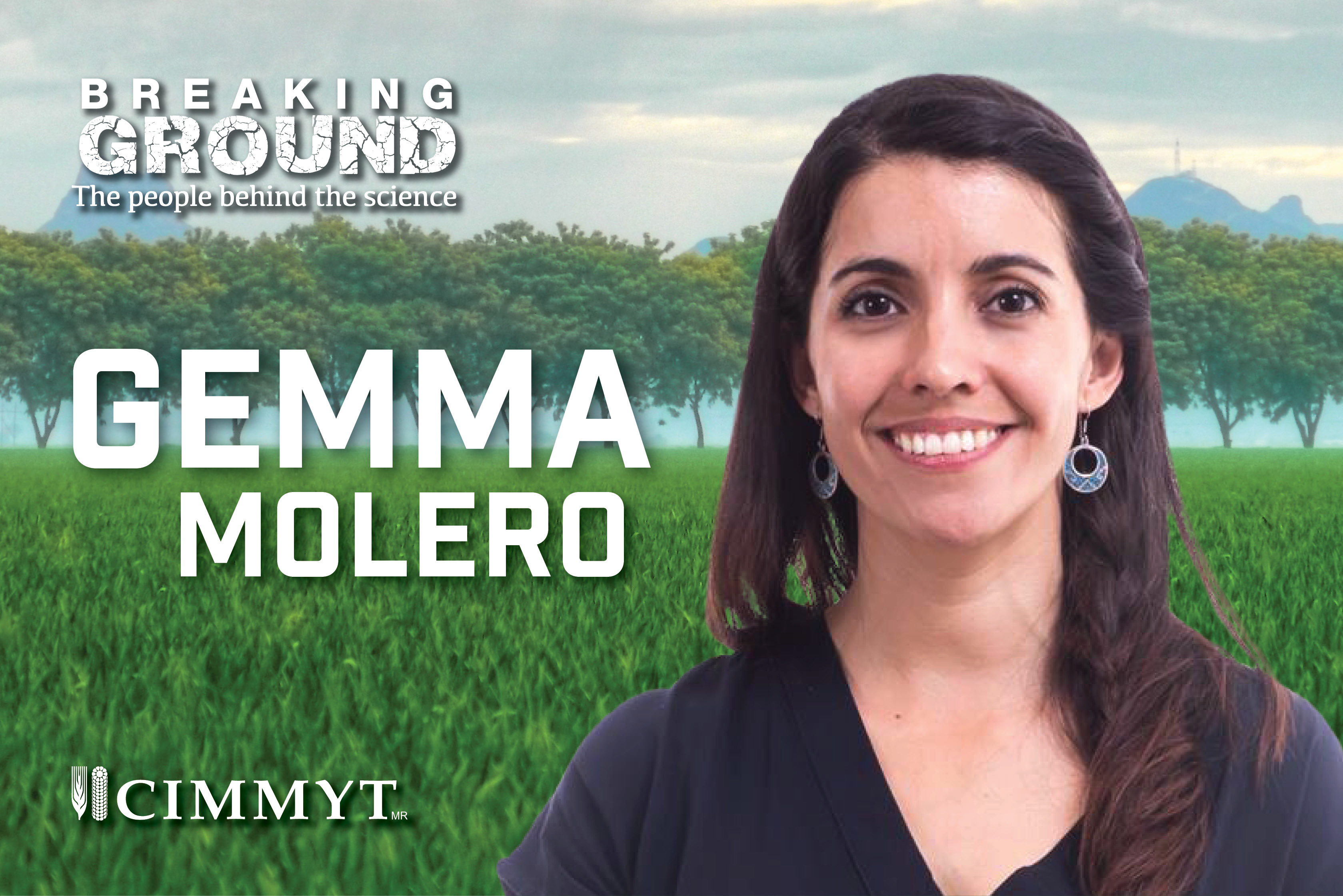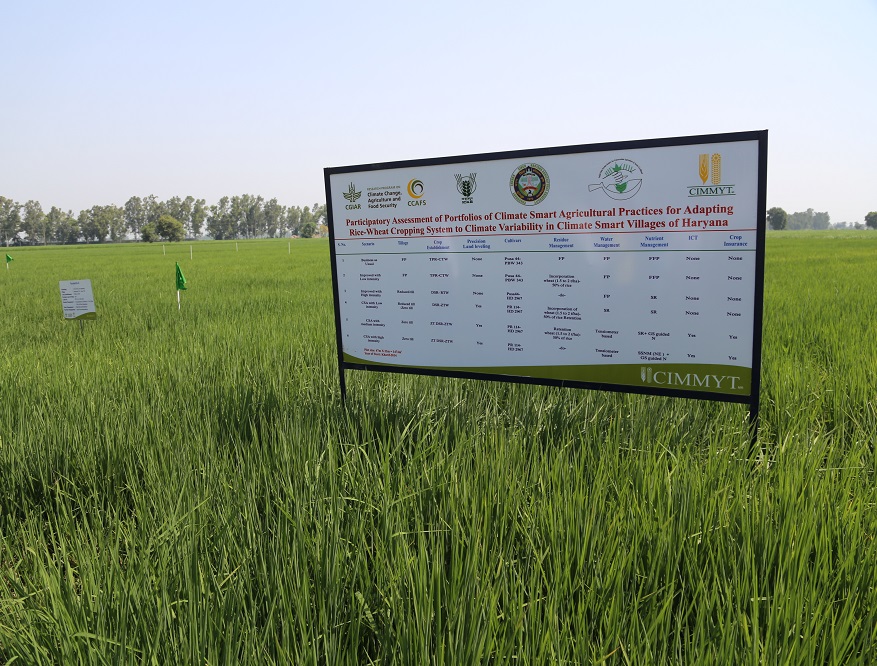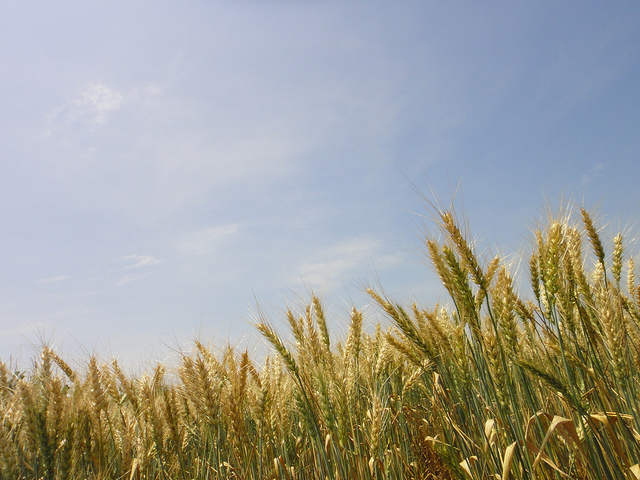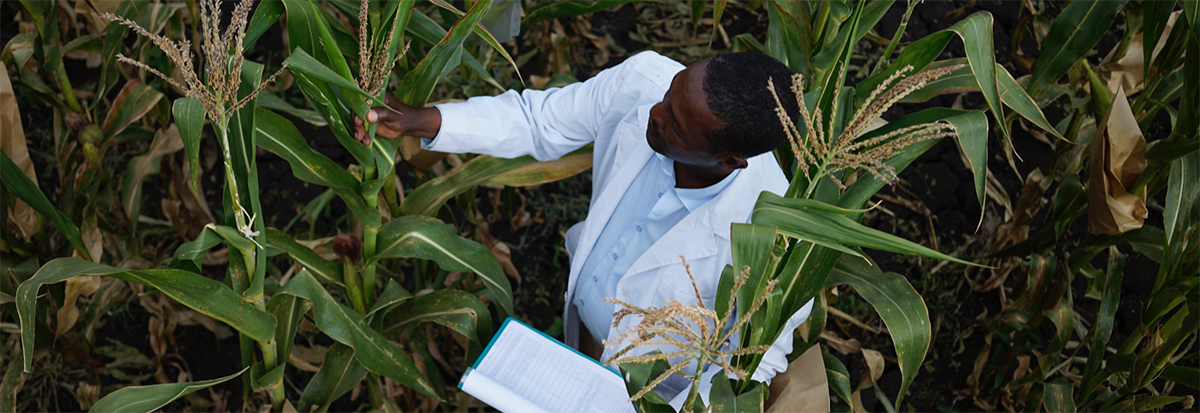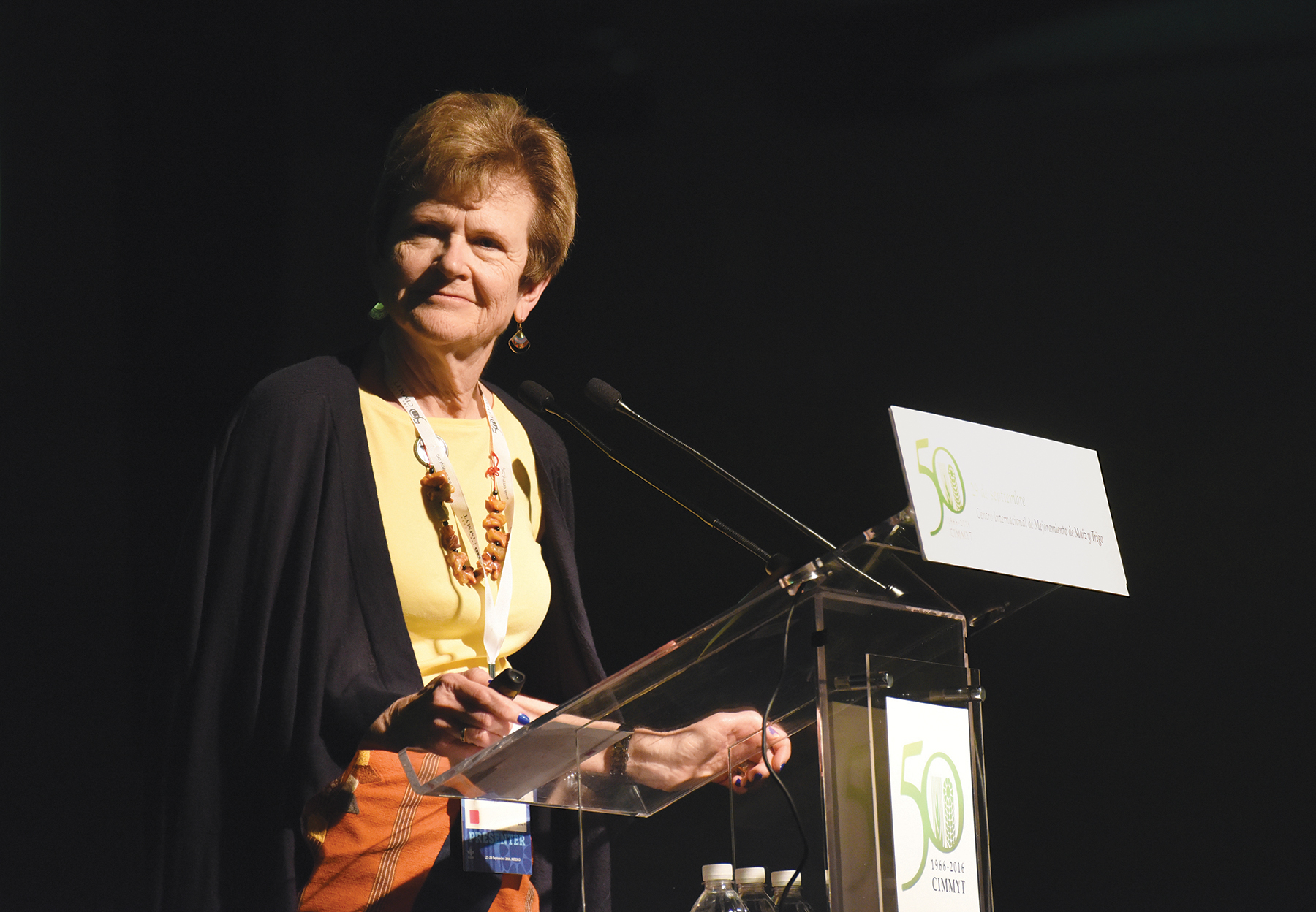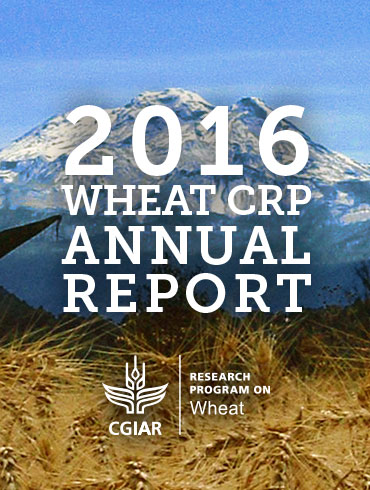CGIAR Research Program on Wheat (WHEAT)
Joining advanced science with field-level research and extension in lower- and middle-income countries, the CGIAR Research Program on Wheat (WHEAT) works with public and private organizations worldwide to raise the productivity, production and affordable availability of wheat for 2.5 billion resource-poor producers and consumers who depend on the crop as a staple food.
WHEAT is led by the International Maize and Wheat Improvement Center (CIMMYT), with the International Center for Agricultural Research in the Dry Areas (ICARDA) as a primary research partner.
Funding for WHEAT comes from CGIAR and national governments, foundations, development banks and other public and private agencies, in particular the Australian Centre for International Agricultural Research (ACIAR), the UK Department for International Development (DFID) and the United States Agency for International Development (USAID).
Wheat blast screening and surveillance training in Bangladesh
 Capacity development
Capacity development
Workshop participants learned how to use the latest in technology to identify and keep track of the deadly Wheat Blast disease.
“Layering” climate smart rice-wheat farming practices in India boosts benefits
 Climate adaptation and mitigation
Climate adaptation and mitigation
New scientific research into “layering” climate smart agriculture techniques shows promise, demonstrating the potential for crop adaptability to climate change.
Young women scientists who will galvanize global wheat research
 Capacity development
Capacity development
Winners of the Jeanie Borlaug Laube Women in Triticum (WIT) Early Career Award joined an on-going wheat research training course organized by CIMMYT.
Scientists seek key to boost yields, ensure future food supply
 Climate adaptation and mitigation
Climate adaptation and mitigation
Crop genetic gains remain too low, and international scientists are making a concerted effort to determine how best to increase yields.
Global grain research and food industry experts meet to address rising malnutrition
 Nutrition, health and food security
Nutrition, health and food security
Malnutrition is rising again and becoming more complex, according to the director-general of the world’s leading public maize and wheat research center.
Climate insurance for farmers: a shield that boosts innovation
 Climate adaptation and mitigation
Climate adaptation and mitigation
New insurance products geared towards smallholder farmers can help them recover their losses, and even encourage investment in climate-resilient innovations.
Leading nutritionist cites whole grains as critical for better nutrition and health
 Nutrition, health and food security
Nutrition, health and food security
People who eat whole grain foods have a lower risk of almost all chronic diseases and are less likely to gain weight as they age, according to nutritionist Julie Miller Jones.
Cutting-edge tools promote conservation, use of biodiversity
 Innovations
Innovations
CIMMYT scientists will present at the COP 13 conference on a new collection of tools and resources that could revolutionize maize breeding and promote genetic diversity conservation.
Maize and wheat global gender study: coding large-scale data to reveal the drivers of agricultural innovation
 Capacity development
Capacity development
Over the last week, MAIZE and WHEAT CRP investigators from the global cross-CRP study on gender in agricultural innovation met at El Batán from 26 Feb to 1 March to take stock of progress so far and plan the next steps in the implementation of this unique research initiative.
Scientists seal agreement to boost adaptability of wheat to climate change
 Climate adaptation and mitigation
Climate adaptation and mitigation
